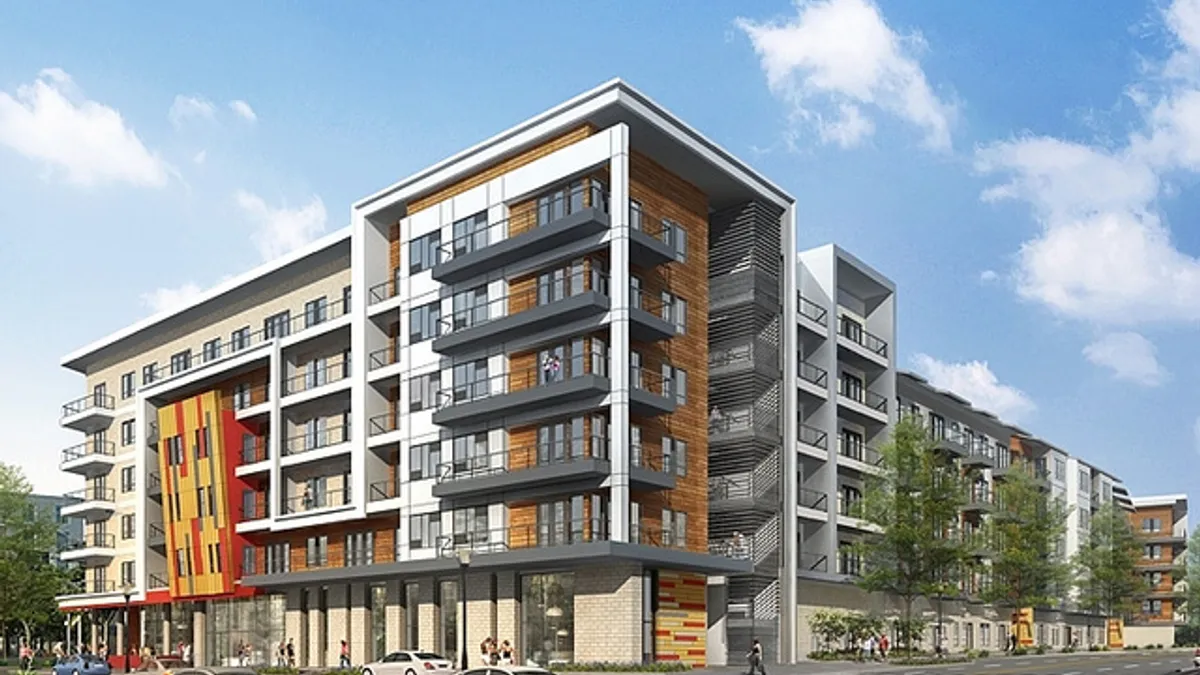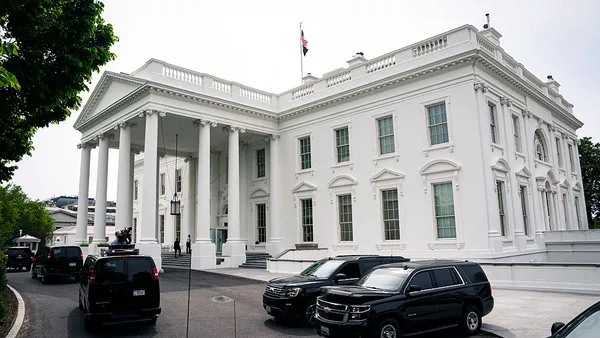Dive Brief:
- Colorado's construction defect laws are constraining Denver condo development and potentially decreasing the availability of affordable entry-level homebuyer options, according to The Wall Street Journal.
- The current law allows homeowners and condo boards to sue builders without first requiring arbitration. The law also reportedly has driven up the cost of builder insurance, as it requires insurers to cover a wide range of defects.
- According to a city of Denver market study, the risk of litigation for condo construction defects adds $15,000 to the building costs of each unit.
Dive Insight:
Denver's hot housing market, as in many other cities, has resulted in a lack of affordable housing, and condos often provide a lower-cost entry into the real estate market for lower-income and first-time buyers. Critics of the Colorado defects law maintain that development of for-sale condos, which has declined in Denver by 53% over the last five years, will prevent more renters from becoming homeowners. However, proponents of the law say that it protects condo owners from shoddy construction work, and, without it, some builders would never follow through on repairs.
As it stands now, however, condo boards can sue builders for defects on behalf of all the owners in a building without getting authorization from individual owners. Along with an arbitration provision, some lawmakers are pushing for a requirement that the majority of homeowners must approve legal action before a condo board can file a lawsuit.
This controversy comes at the same time as developers are fighting the city of Denver over proposed affordable housing fees. Denver Mayor Michael Hancock has called for a 40-cent-per-square-foot to $1.70-per-square foot impact fee on new construction projects in order to pay for a 6,000-unit, $150 million affordable housing initiative. Critics have said the mayor's plan will drive up the costs of building, which will result in higher rents.
Portland, another city struggling with a lack of affordable housing, recently implemented a 1% construction excise tax to fund its affordable housing programs, and it is expected to raise $8 million annually. Portland's excise tax worth more than $100,000 in value will assist in building homes for city households making less than 80% of the national median income, but there is concern on the part of local real estate professionals about the long-range effect of the new law.













